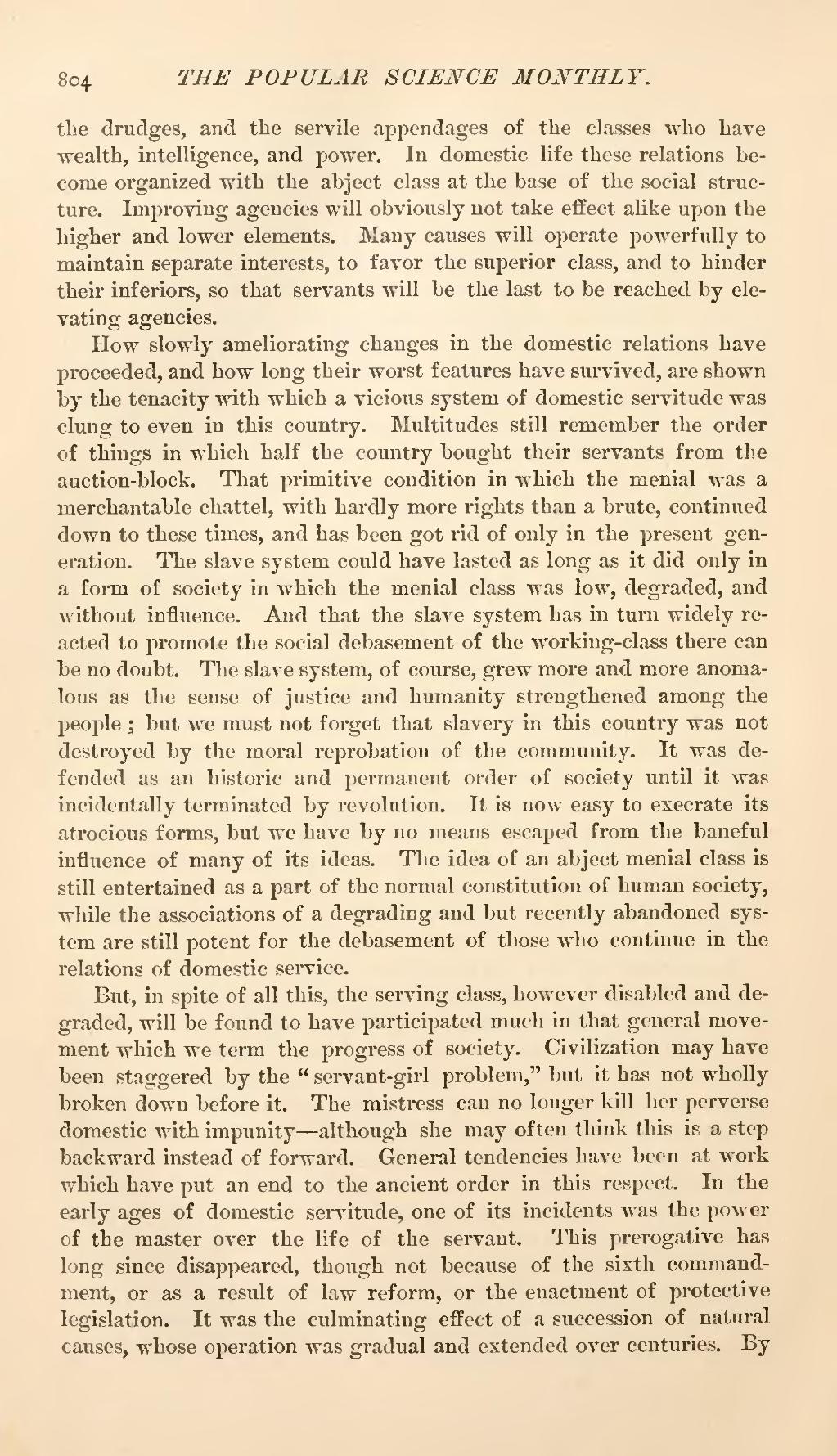the drudges, and the servile appendages of the classes who have wealth, intelligence, and power. In domestic life these relations become organized with the abject class at the base of the social structure. Improving agencies will obviously not take effect alike upon the higher and lower elements. Many causes will operate powerfully to maintain separate interests, to favor the superior class, and to hinder their inferiors, so that servants will be the last to be reached by elevating agencies.
How slowly ameliorating changes in the domestic relations have proceeded, and how long their worst features have survived, are shown by the tenacity with which a vicious system of domestic servitude was clung to even in this country. Multitudes still remember the order of things in which half the country bought their servants from the auction-block. That primitive condition in which the menial was a merchantable chattel, with hardly more rights than a brute, continued down to these times, and has been got rid of only in the present generation. The slave system could have lasted as long as it did only in a form of society in which the menial class was low, degraded, and without influence. And that the slave system has in turn widely reacted to promote the social debasement of the working-class there can be no doubt. The slave system, of course, grew more and more anomalous as the sense of justice and humanity strengthened among the people i but we must not forget that slavery in this country was not destroyed by the moral reprobation of the community. It was defended as an historic and permanent order of society until it was incidentally terminated by revolution. It is now easy to execrate its atrocious forms, but we have by no means escaped from the baneful influence of many of its ideas. The idea of an abject menial class is still entertained as a part of the normal constitution of human society, while the associations of a degrading and but recently abandoned system are still potent for the debasement of those who continue in the relations of domestic service.
But, in spite of all this, the serving class, however disabled and degraded, will be found to have participated much in that general movement which we term the progress of society. Civilization may have been staggered by the "servant-girl problem," but it has not wholly broken down before it. The mistress can no longer kill her perverse domestic with impunity—although she may often think this is a step backward instead of forward. General tendencies have been at work which have put an end to the ancient order in this respect. In the early ages of domestic servitude, one of its incidents was the power of the master over the life of the servant. This prerogative has long since disappeared, though not because of the sixth commandment, or as a result of law reform, or the enactment of protective legislation. It was the culminating effect of a succession of natural causes, whose operation was gradual and extended over centuries. By

